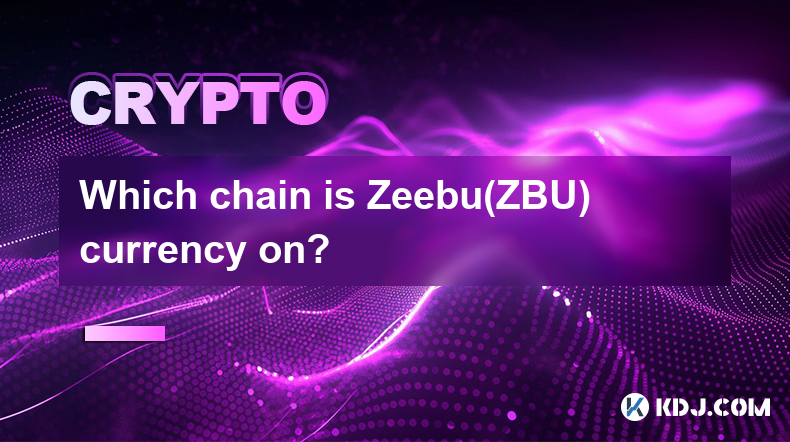-
 Bitcoin
Bitcoin $97,219.4672
1.63% -
 Ethereum
Ethereum $1,820.8950
1.13% -
 Tether USDt
Tether USDt $1.0001
0.02% -
 XRP
XRP $2.1327
-0.43% -
 BNB
BNB $602.3281
0.03% -
 Solana
Solana $147.7911
1.09% -
 USDC
USDC $0.9999
-0.01% -
 Dogecoin
Dogecoin $0.1725
1.12% -
 Cardano
Cardano $0.6706
0.13% -
 TRON
TRON $0.2489
1.41% -
 Sui
Sui $3.3512
1.53% -
 Chainlink
Chainlink $13.8526
1.44% -
 Avalanche
Avalanche $19.6299
-1.30% -
 UNUS SED LEO
UNUS SED LEO $8.7562
0.40% -
 Stellar
Stellar $0.2611
-0.23% -
 Shiba Inu
Shiba Inu $0.0...01279
1.26% -
 Toncoin
Toncoin $3.0266
0.40% -
 Hedera
Hedera $0.1765
0.37% -
 Bitcoin Cash
Bitcoin Cash $369.4993
2.08% -
 Hyperliquid
Hyperliquid $21.1995
1.68% -
 Litecoin
Litecoin $89.5955
4.54% -
 Polkadot
Polkadot $3.9568
0.63% -
 Dai
Dai $1.0002
0.01% -
 Monero
Monero $282.5473
-1.06% -
 Bitget Token
Bitget Token $4.2199
-1.10% -
 Ethena USDe
Ethena USDe $1.0007
0.03% -
 Pi
Pi $0.5835
0.91% -
 Pepe
Pepe $0.0...08266
4.18% -
 Bittensor
Bittensor $367.8815
0.84% -
 Uniswap
Uniswap $4.8814
-0.32%
Which chain is Zeebu(ZBU) currency on?
Zeebu (ZBU), a BEP-20 token, leverages the high-speed, low-fee Binance Smart Chain (BSC) for efficient cryptocurrency transactions and smart contract capabilities.
Dec 08, 2024 at 12:06 pm

Which Chain is Zeebu (ZBU) Currency On?
Zeebu (ZBU) is a cryptocurrency that operates on the Binance Smart Chain (BSC). It is a BEP-20 token, which means it is compatible with the Binance Smart Chain ecosystem and can interact with other BEP-20 tokens, decentralized applications (dApps), and smart contracts built on BSC.
Background on Binance Smart Chain (BSC)
- Overview: BSC is a blockchain platform launched in September 2020 by Binance, the world's largest cryptocurrency exchange by trading volume. It is a smart contract-enabled blockchain that runs parallel to the Binance Chain, a high-performance blockchain optimized for trading and transferring cryptocurrencies.
- Compatibility and Advantages: BSC is built using a dual-chain architecture, making it compatible with Ethereum Virtual Machine (EVM). This allows developers to easily port their existing Ethereum-based dApps and smart contracts onto BSC, benefiting from faster transaction speeds and lower transaction fees compared to Ethereum.
- Consensus Mechanism: BSC operates on a Proof-of-Stake Authority (PoSA) consensus mechanism, where 21 validators are responsible for validating transactions and securing the network. This mechanism provides fast transaction processing speeds, typically within seconds, and significantly reduces transaction costs compared to traditional Proof-of-Work (PoW) blockchains.
Why Zeebu (ZBU) Chose Binance Smart Chain (BSC)
Zeebu (ZBU) selected Binance Smart Chain as its blockchain platform due to the following advantages:
- Fast Transaction Speeds: BSC's PoSA consensus mechanism enables rapid transaction processing, allowing Zeebu to facilitate quick and efficient transfers of ZBU tokens.
- Low Transaction Fees: BSC's gas fees are significantly lower than those of Ethereum, making it a cost-effective platform for Zeebu's operations and transactions.
- Smart Contract Capabilities: BSC's EVM compatibility allows Zeebu to leverage smart contract functionality for creating and managing decentralized applications (dApps) and implementing complex financial and transactional operations.
- Growing Ecosystem: BSC's thriving ecosystem offers access to numerous other BEP-20 tokens, dApps, and decentralized finance (DeFi) protocols, providing Zeebu with opportunities for integration and collaborations.
- Developer Friendly: BSC's developer-friendly platform and tools make it easy for Zeebu to build and deploy its dApps and smart contracts on BSC, facilitating rapid development and innovation.
Conclusion
Zeebu (ZBU) operates on the Binance Smart Chain (BSC) due to its advantages in transaction speed, low transaction fees, smart contract capabilities, growing ecosystem, and developer friendliness. These factors enable Zeebu to efficiently facilitate cryptocurrency transactions, develop innovative dApps, and leverage the benefits of a robust blockchain platform.
Disclaimer:info@kdj.com
The information provided is not trading advice. kdj.com does not assume any responsibility for any investments made based on the information provided in this article. Cryptocurrencies are highly volatile and it is highly recommended that you invest with caution after thorough research!
If you believe that the content used on this website infringes your copyright, please contact us immediately (info@kdj.com) and we will delete it promptly.
- Tron (TRX) is catching the market's attention with its current price of $0.244, holding steady above its key support level of $0.24
- 2025-05-08 06:45:13
- Bitcoin Could Be Getting Closer to Having a Place at the Government Table
- 2025-05-08 06:45:13
- Don't Miss BTFD at $0.0002—Next Crypto To Explode with 8900% ROI as PENGU Goes Walmart and SNEK Gets Global!
- 2025-05-08 06:40:13
- US Large-Cap Sustainable Funds Have Lost 5.93% of Their Value Year-to-Date
- 2025-05-08 06:40:13
- Shiba Inu (SHIB) Burn Rate Drops by 87%, Only 320814 Tokens Destroyed Today
- 2025-05-08 06:35:14
- Quant (QNT) Price Surged Past $88 as Investors Bought the Dip
- 2025-05-08 06:35:14
Related knowledge

Is Ethereum Layer2 fee low? How to use it cheaper?
May 08,2025 at 03:56am
The question of whether Ethereum Layer 2 solutions offer lower fees and how to use them more economically is a topic of great interest within the cryptocurrency community. Ethereum's Layer 2 solutions have been developed to address the high transaction fees and scalability issues associated with the main Ethereum network. In this article, we will delve ...

How to calculate Ethereum network fee? How to reduce transaction costs?
May 08,2025 at 02:15am
Understanding and managing Ethereum network fees is crucial for anyone involved in transactions on the Ethereum blockchain. The network fee, also known as gas fee, is the amount of Ether (ETH) required to successfully conduct a transaction or execute a smart contract on the Ethereum network. Calculating these fees and finding ways to reduce them can sig...

What is Ethereum Gas Fee? How to optimize Gas Fee to save costs?
May 08,2025 at 03:43am
Ethereum gas fees are a crucial aspect of interacting with the Ethereum blockchain. Understanding and optimizing these fees can significantly impact the cost-effectiveness of transactions and smart contract interactions. In this article, we will delve into what Ethereum gas fees are, how they are calculated, and provide detailed strategies for optimizin...

How to perform MOVE cross-chain transfer? What to do if the gas fee is too high?
May 07,2025 at 08:03pm
Introduction to MOVE Cross-Chain TransferCross-chain transfers have become an essential part of the cryptocurrency ecosystem, allowing users to move assets between different blockchain networks. One of the popular protocols for achieving this is the MOVE cross-chain transfer. This article will guide you through the process of performing a MOVE cross-cha...

How is the DYDX liquidation price calculated? How is the forced liquidation mechanism?
May 08,2025 at 06:49am
The DYDX liquidation price and the forced liquidation mechanism are crucial aspects of trading on the dYdX platform, a decentralized exchange that allows users to trade perpetual contracts. Understanding these concepts is essential for managing risk and maximizing potential returns. In this article, we will delve into the details of how the DYDX liquida...

Does DYDX support cross-chain? Is the transfer speed fast?
May 07,2025 at 05:56pm
Introduction to DYDXDYDX is a leading decentralized exchange (DEX) that primarily operates on the Ethereum blockchain. It is known for its advanced trading features, including perpetual contracts and margin trading. A common question among users is whether DYDX supports cross-chain functionality and how fast the transfer speeds are. In this article, we ...

Is Ethereum Layer2 fee low? How to use it cheaper?
May 08,2025 at 03:56am
The question of whether Ethereum Layer 2 solutions offer lower fees and how to use them more economically is a topic of great interest within the cryptocurrency community. Ethereum's Layer 2 solutions have been developed to address the high transaction fees and scalability issues associated with the main Ethereum network. In this article, we will delve ...

How to calculate Ethereum network fee? How to reduce transaction costs?
May 08,2025 at 02:15am
Understanding and managing Ethereum network fees is crucial for anyone involved in transactions on the Ethereum blockchain. The network fee, also known as gas fee, is the amount of Ether (ETH) required to successfully conduct a transaction or execute a smart contract on the Ethereum network. Calculating these fees and finding ways to reduce them can sig...

What is Ethereum Gas Fee? How to optimize Gas Fee to save costs?
May 08,2025 at 03:43am
Ethereum gas fees are a crucial aspect of interacting with the Ethereum blockchain. Understanding and optimizing these fees can significantly impact the cost-effectiveness of transactions and smart contract interactions. In this article, we will delve into what Ethereum gas fees are, how they are calculated, and provide detailed strategies for optimizin...

How to perform MOVE cross-chain transfer? What to do if the gas fee is too high?
May 07,2025 at 08:03pm
Introduction to MOVE Cross-Chain TransferCross-chain transfers have become an essential part of the cryptocurrency ecosystem, allowing users to move assets between different blockchain networks. One of the popular protocols for achieving this is the MOVE cross-chain transfer. This article will guide you through the process of performing a MOVE cross-cha...

How is the DYDX liquidation price calculated? How is the forced liquidation mechanism?
May 08,2025 at 06:49am
The DYDX liquidation price and the forced liquidation mechanism are crucial aspects of trading on the dYdX platform, a decentralized exchange that allows users to trade perpetual contracts. Understanding these concepts is essential for managing risk and maximizing potential returns. In this article, we will delve into the details of how the DYDX liquida...

Does DYDX support cross-chain? Is the transfer speed fast?
May 07,2025 at 05:56pm
Introduction to DYDXDYDX is a leading decentralized exchange (DEX) that primarily operates on the Ethereum blockchain. It is known for its advanced trading features, including perpetual contracts and margin trading. A common question among users is whether DYDX supports cross-chain functionality and how fast the transfer speeds are. In this article, we ...
See all articles





















































































